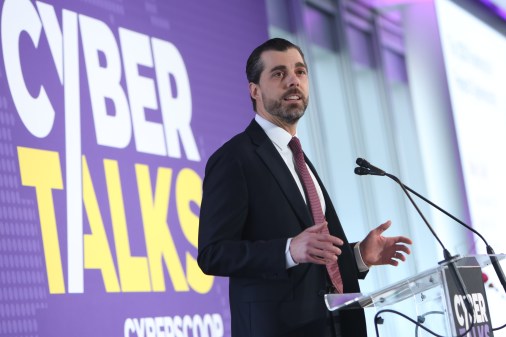White House official says R&D funding and AI advances are ‘at risk’

As President-elect Donald Trump prepares to take office again, a current White House official is voicing concerns over federal research and development funding and artificial intelligence in the next administration.
Office of Science and Technology Policy Director Arati Prabhakar on Tuesday reiterated her worries for federal R&D spending and programs during an event hosted at the National Academies of Sciences, Engineering, and Medicine. Prabhakar pointed to the first Trump administration’s requests for “cut after cut” to federal R&D, and to subsequent Republican efforts in Congress, namely a proposal to slash funds by 19% over a decade in 2023.
Prabhakar has spoken previously about how federal R&D funding shortfalls, specifically for laboratory infrastructure, pose a challenge to AI innovation. The OSTP director described a “dark future” of AI with elevated concerns around privacy, discrimination and misinformation that could be possible under the Trump administration.
“Some of those great advances are at risk,” Prabhakar said. “And that’s because — very unfortunately — last year, congressional Republicans held the country hostage, threatening to default on our debt obligations, and the upshot of that was budget caps that, among many problems, have stalled progress on federal R&D funding and even cut some of these critical federal R&D programs.”
Prabhakar said the current administration championed significant increases in federally funded R&D during President Joe Biden’s first two years in office. According to the Government Publishing Office’s GovInfo, the 2023 budget provided 28% more in federal R&D funding than the 2021 enacted budget, which sat at $142.2 billion as a result of the Trump administration’s budget request.
The first Trump administration established a federal R&D budget of approximately $140.1 billion in FY 2019 and jumped up to $156 billion in 2020, according to the Congressional Research Service (CRS). The Trump administration then requested a $13.8 billion cut for FY 2021.
The Trump administration in February 2020 said it would increase R&D funding for FY 2021 by 6%, per the archived White House website, adding that those funding levels would put the nation “in position to maintain its global leadership in science and technology for generations to come.”
Prabhakar has previously stated that a lack of federal R&D funding stifles AI innovation, specifically regarding infrastructure challenges, and has hindered agencies’ ability to meet current mission objectives.
“When you think AI, you think about a lot of compute,” Prabhakar told FedScoop in June. “Many of these applications live at the intersection of AI, information technology, and the real world. … To do this work well is going to require all the marvels of AI and it’s going to continue to require the laboratory research that’s been the foundation of so many of these different disciplines.”
On Tuesday, Prabhakar said AI could bring about a “dark future” in the next administration if discrimination and bias are implemented into systems at “massive scale” in areas like housing, lending, criminal justice and health care. She warned of privacy implications as well, where “there’s no protection for any of us from the prying eye of corporations, of your government or another government.”
“In this dark future, every move, every click is being surveilled,” Prabhakar said. “In this dark future, misinformation and disinformation and deepfakes are so rampant that reality is distorted, and fraud is so rampant that trust is destroyed.”
The Trump transition team did not respond to requests for comment in time for publication.






